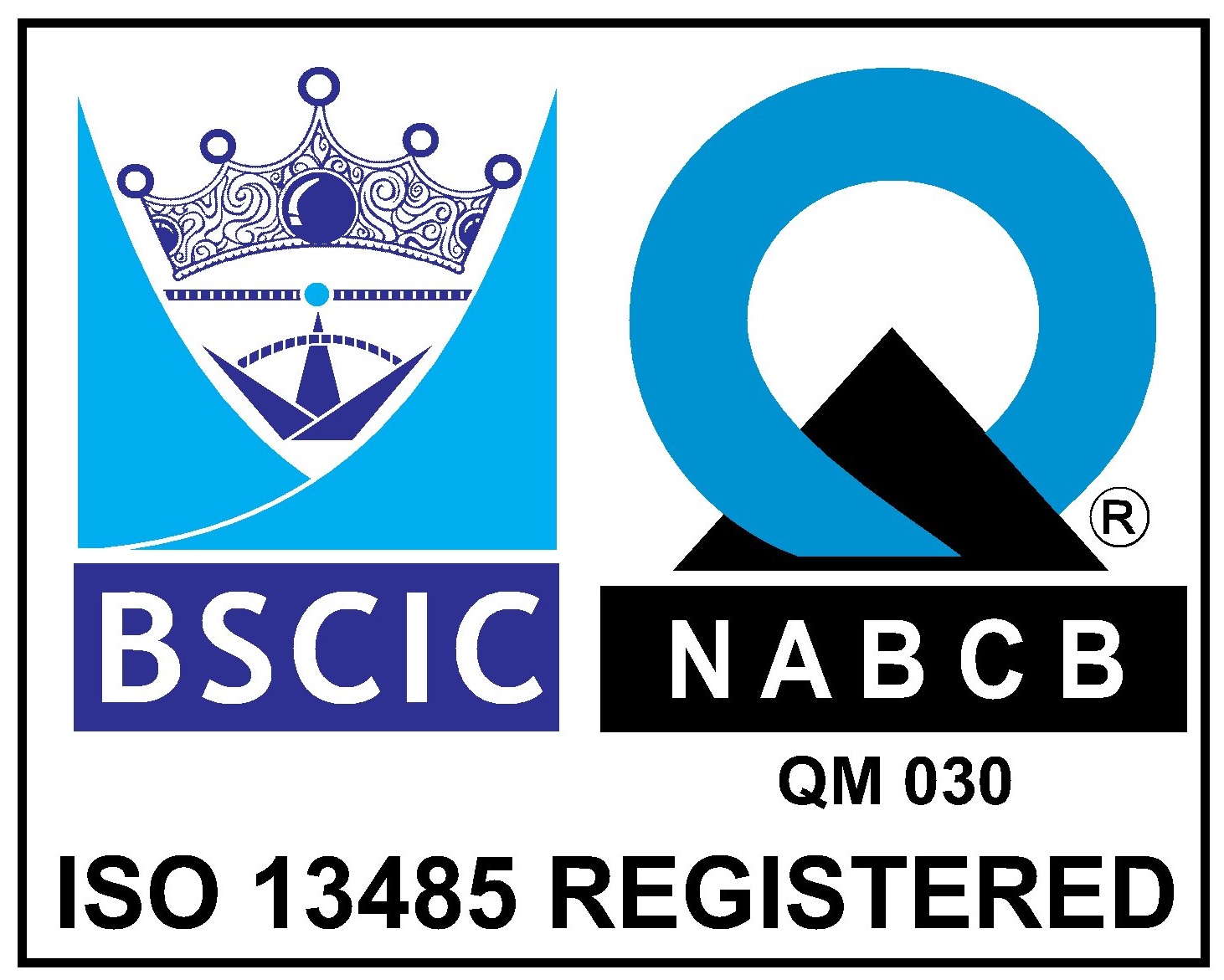This ISO Management System will be accredited by NABCB
(National Accreditation Board for Certification Bodies)
 What is ISO 13485?
What is ISO 13485?
The common medical device QMS, ISO 13485:2016, outlines the specifications for a quality management system where an organization must demonstrate its capacity to offer medical devices and related services that consistently meet regulatory criteria as well as those of the customer. The standard's primary goal is to streamline the regulatory requirement framework for medical devices. As a result, it is essential to incorporate the unique requirements for medical devices and do away with the ISO 9001 (QMS) requirement, which is not necessary as a regulatory requirement.
Why ISO 13485 is Important?
The process for implementing a system in the medical device industry is called ISO 13485. It is crucial for medical device suppliers, manufacturers, and designers to guarantee product quality, safety, and risk management. It was the most widely acknowledged model for any organization that supports the establishment of conformity with the rules and laws governing the medical device sector on a global scale. Specifically based on ISO 9001:2008 is ISO 13485:2016. An organization can only continuously enhance its efficiency and effectiveness with a QMS. However, MDQMS certifies the legitimacy of medical devices made in any institution.

Why do we need ISO 13485?
It is a type of third-party confirmation that you meet the fundamental requirements of the ISO management standard. This demonstrates that you are operating your business ethically. This aids in sustaining your company's structure while generating steady growth and increased profitability.
Implementing ISO 13485 gives manufacturers assistance in communicating the EU Medical Device Directive (MDD), the EU Medical Device Regulation (MDR), and other legislation, as well as demonstrating assurance in the security and caliber of medical devices. You must start creating paperwork that includes the quality policy, quality objectives, and quality manual with management support and after recognizing the client requirements for the QMS. All of these specify the Quality Management System's overarching objectives and methods of implementation. Organizations must also develop the additional, essential processes and procedures that are required. An overview of ISO 13485-certified companies demonstrates that a majority of them have an active ISO 13485 Medical Devices Quality Management System in place.
What benefits of ISO 13485?
- Helping in increased Efficiency
- Help in improvement of the organization by enhancing the credibility and image
- Reduce risk
- Identify risk and further better opportunity
- Determining the customer satisfaction
- To improve the quality of products, processes, operations etc.
- Improve the consistency of your company
Is ISO 13485 Complex to Implement?
Implementing an ISO standard is not particularly difficult. The organization of implementation can be helped by good guidance and training. Implementing ISO 13485 demonstrates that a business complies with the necessary rules and guidelines set forth in the standard, thereby satisfying the fundamental requirement of customer satisfaction. It assists in maintaining medical devices for quality, risk management, etc.
By adopting ISO 13485, manufacturers can show their dedication to the security and quality of medical devices and lay a solid foundation on which to address the EU Medical Device Directive (MDD), the EU Medical Device Regulation (MDR), and other laws.
You must begin creating documentation, such as the Quality Policy, Quality Objectives, and Quality Manual, with management support and by determining the needs of the customers for the QMS. Together, these describe the Quality Management System's overall implementation and scope. You'll also need to develop the essential and optional processes and procedures your organization needs to deliver your product or service in a proper manner. Look at the article List of necessary papers required by ISO 13485:2016 for a further explanation of this. The number of businesses that have adopted an ISO 13485 Quality Management System continues to exhibit a generally favorable trend worldwide, according to a study of ISO 13485-certified businesses (the decline in 2018 was primarily due to a different measurement methodology).
